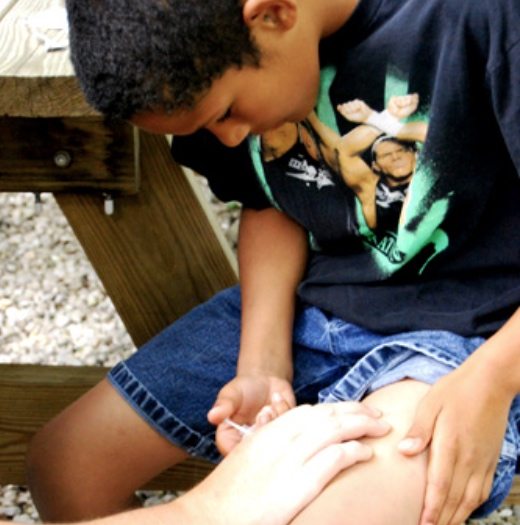
June 7, 2017; U.S. News & World Report
NPQ has written repeatedly about how the funding of patient advocacy groups by pharmaceutical and medical device corporations has hijacked a frontline of defense for those with chronic diseases. In other words, when you take money from business interests whose bottom-line profits are made off your constituents, it mutes your voice in a pernicious way that should not be tolerated.
Yesterday, Kaiser News reported on a win for patient advocates in Nevada as they goosed a bill in the legislature requiring insulin makers to disclose the profits they make on the drug necessary to the survival of the 1.25 million Americans who live with Type 1 diabetes. The cost of insulin has risen more than threefold over the last decade, only to be met with a truly stunning silence from patient advocacy nonprofits.
In this case, the patients had to go it alone and without the support of patient advocacy groups like the American Diabetes Association, notable for their absence in this fight. Why so quiet? That traces back to their financial ties to the very pharmaceutical industry being challenged in such legislation. This article says that “many of the dozens of U.S. diabetes advocacy organizations, large and small, garner significant portions of their funding from insulin manufacturers.” The Nevada bill in question would require such contributions be openly disclosed.
In 2016, two of the “big three” insulin producers—Eli Lilly and Sanofi—contributed at least $4.7 million to such national patient advocacy groups as the American Diabetes Association, Diabetes Patient Advocacy Coalition (DPAC), JDRF International and the Diabetes Hands Foundation, according to company disclosures. The third major insulin manufacturer, Novo Nordisk, does not disclose its charitable contributions.
Sign up for our free newsletters
Subscribe to NPQ's newsletters to have our top stories delivered directly to your inbox.
By signing up, you agree to our privacy policy and terms of use, and to receive messages from NPQ and our partners.
The Nevada Diabetes Association, for instance, does not list its financial sponsors on its website or on its IRS Form 990. Executive Director Sarah Gleich says, “We disclose what we have received, and the IRS does not require that we publicly publish from whom. No one is giving out their invitation list to the party.” (The…party?) The American Diabetes Association took in at least $3.9 million from Eli Lilly and Sanofi last year, which is when CEO Larry Hausner wrote, in an op-ed opposing the legislation in the Nevada Appeal, “Caring for people with diabetes involves more than what they pay for insulin or another medication.”
So, abandoned by their advocacy groups, diabetes patients organized a campaign on Twitter, using the hashtag #insulin4all. Erin Gilmer, a Colorado advocate with Type 1 diabetes, comments, “People feel frustrated. At the federal level, we’re not being seen because there’s so much going on politically…It might have to be a state-by-state movement.”
Laura Marston, an advocate in Washington, D.C., with Type 1 diabetes, says that there is plenty of grassroots support for legislation on insulin prices, but that advocacy organizations are not listening to the right people.
“There should be more focus on the one thing we need to survive. … Without insulin, I die a horrendous death in 12 to 24 hours,” Marston says. “No grassroots support? There’s desperation.”
—Ruth McCambridge













